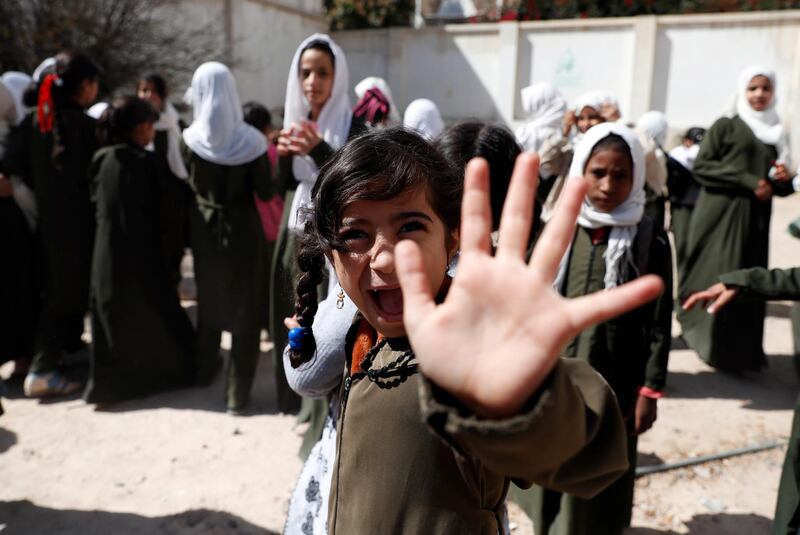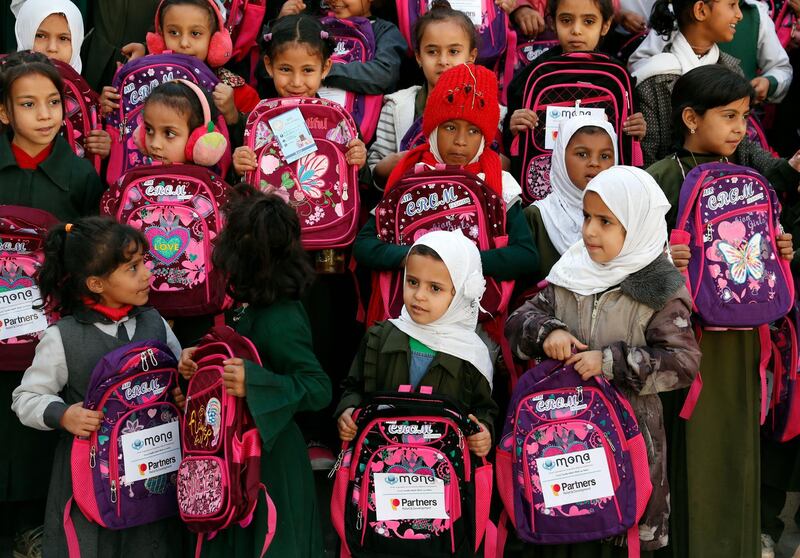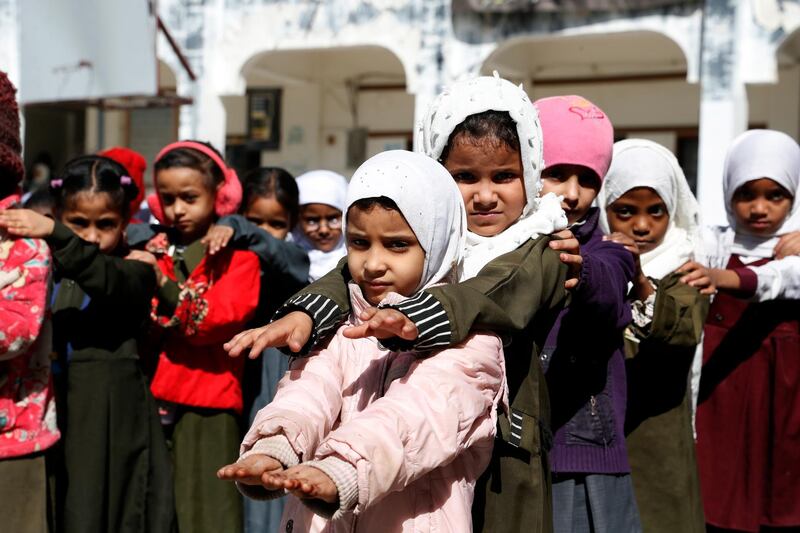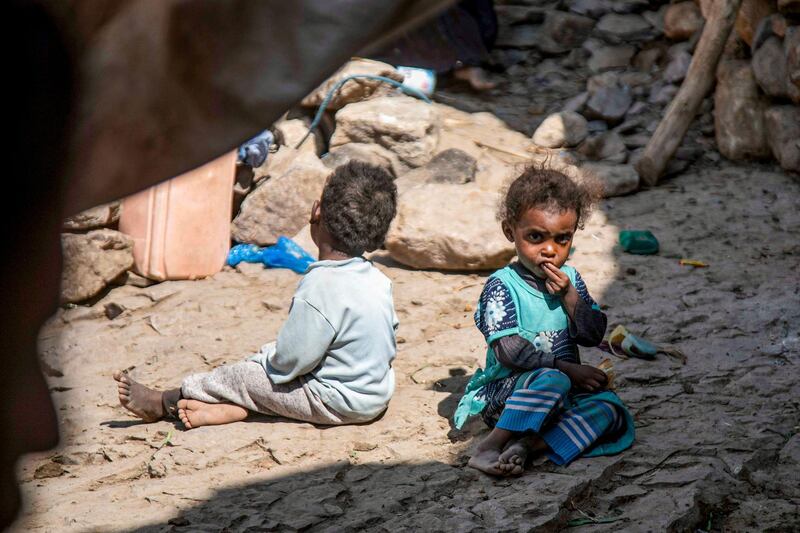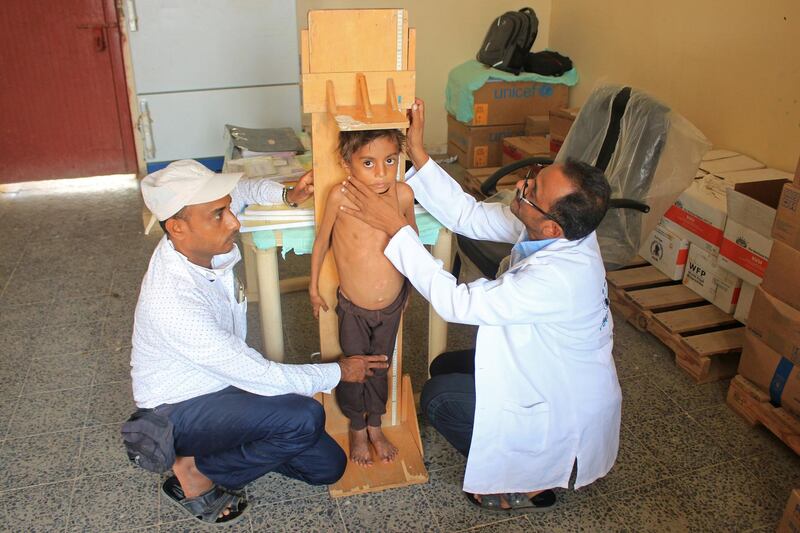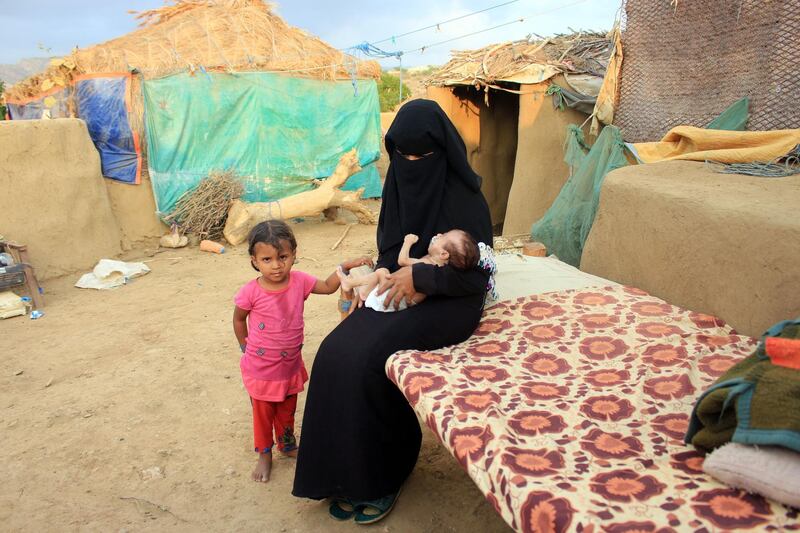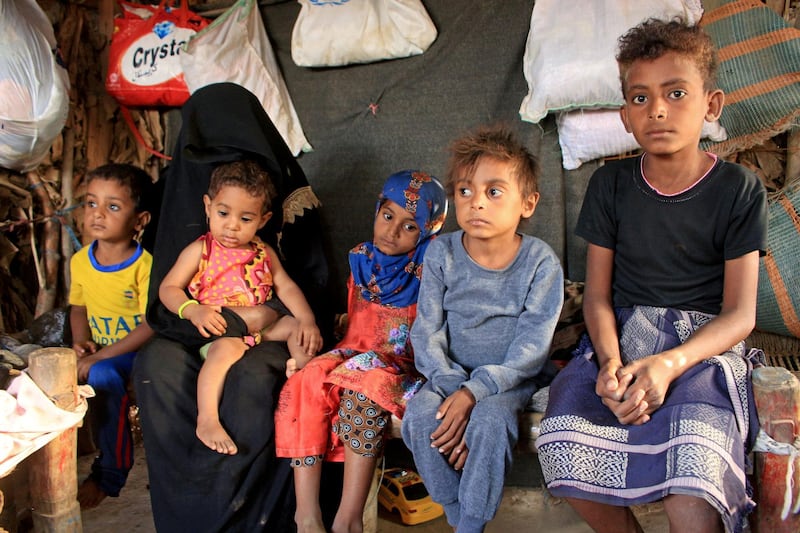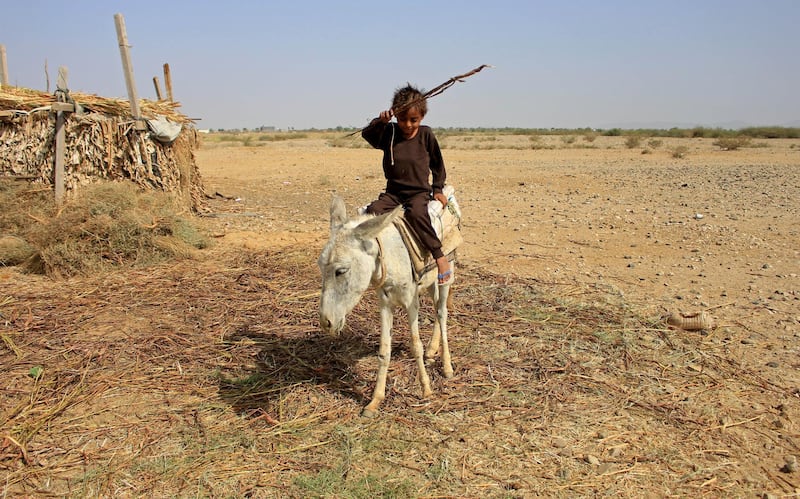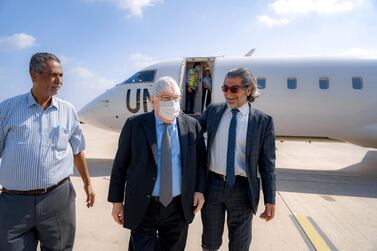Aid groups operating in Yemen called on incoming US president Joe Biden to reverse a Houthi terror designation which comes into effect on Tuesday.
The Norwegian Refugee Council said the designation would impact the way humanitarian agencies source their aid, pay salaries to their workers and transfer money.
“The NRC is not a political actor. However, the situation in Yemen compels us to speak out on behalf of the civilians,” said the group's Advocacy Manager for Yemen, Sultana Begum.
“It is virtually impossible for us to carry out our work without engaging with the de facto authorities in northern Yemen, which rule over 70 per cent of the population and most of the banks’ headquarters, without being criminalised under the newly imposed sanctions.”
US Secretary of State Mike Pompeo said the US Treasury Department would provide “licenses” to allow activities conducted by NGOs to continue.
But the NRC and UNB say aid groups have not been informed about the licensing process or been given prior sight of the legislation enacting the designation.
“Exemptions cannot come fast or be broad enough to save the country from humanitarian impact. We might have to slow down, pause and even possibly cut our assistance for fear of criminal prosecution,” Ms Begum said.
Almost all Yemenis depend on food imports, most of which come through one of the country’s main seaports in Hodeidah, which is under Houthi control.
Still, even when the text of the designation is released on Tuesday, it would be a “minefield of legal complexities”, says Ms Begum, which would take some time to understand and accordingly plan.
“Aid agencies have no confirmed details on how they will work or what activities will be eligible. The details apparently won’t be ready until the day that the designation takes force,” UN Under Secretary-General for Humanitarian Affairs and Emergency Relief Co-ordinator, Mark Lowcock said in a Thursday address to the UN Security Council.
The World Food Programme’s head David Beasley called the designation a “death sentence to hundreds of thousands, if not millions of innocent people in Yemen.”
Mr Lowcock said importers are using words like “disaster” and “havoc” when describing the situation after the designation takes place.
“For years, these companies have been moving mountains to sustain their very risk-averse global supply chains – including the suppliers, banks, insurers and shipping lanes”, he said in his UNSC address.
Ms Begum said all of this will push up costs by at least 400 per cent, which is too expensive for importers.
“Even if we get food and essentials, with price increases, the Yemenis won’t be able to afford these items, which are already too expensive,” she said.
In response to these rallying cries, US Deputy Permanent Representative to the UN Ambassador Richard Mills said the US has a “very important interest” to “ensure the official activities of other international organisations, such as the UN, continue.”
Yemen’s internationally recognised government and its allies welcomed the designation, whose proponents believe might bring the Houthis to the negotiating table after years of a stalemate in political talks and a military conflict which brought further devastation to the country and its people.
In December, a missile attack on Aden’s airport as the country’s new government was landing, killed at least 26 people. The Yemeni government blamed the Houthis for the attack although a group has yet to claim responsibility for it.
Aftermath of explosions at Yemen's Aden airport

This event “constituted a milestone in strengthening the US direction,” reads an Emirates Policy Centre analysis on the Houthi FTO designation.
Punishing the Houthis for civilian killings, terror activities, recruitment of child soldiers and other devastating violations through the designation, and acknowledging the difficulties of reaching a peace agreement, shows that Washington and its allies desire ”to move stagnant waters,” the EPC analysis suggests.
“Our key call is to President Biden and the new administration to revoke this designation and do what’s really needed for Yemen and for supporting the peace process,” Ms Begum said.

